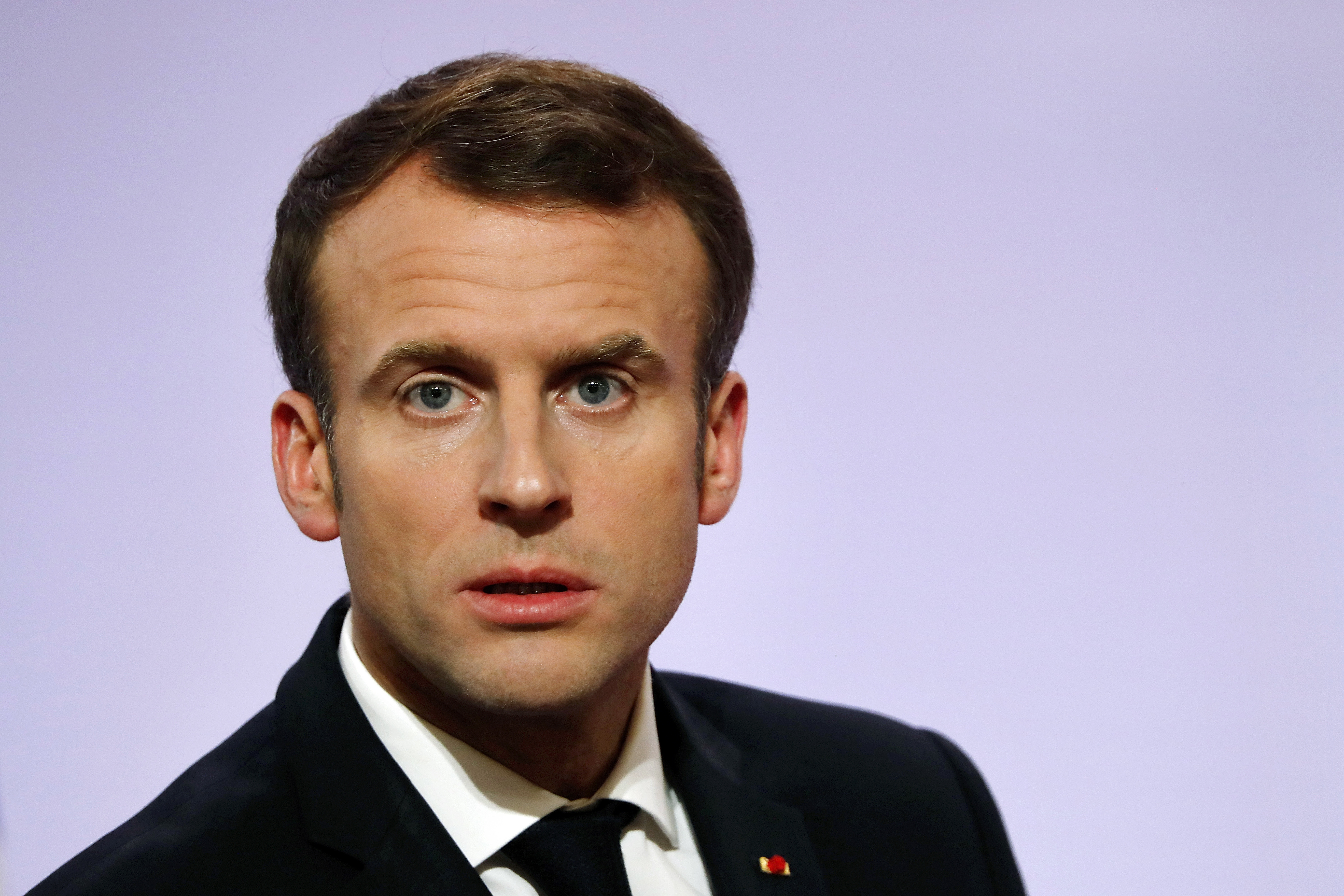
As protests rages in France, Macron remains invisible
PARIS (AP) — As anti-government protests rage through France and Paris locks down, fearing new riots, the man whose presidency has unleashed the anger is nowhere to be seen.
French President Emmanuel Macron has stayed out of the public eye all week, leaving his unpopular government to try to calm the nation. In response, “Macron, resign!” has become the main slogan of the “yellow vest” demonstrators.
The protesters’ anger has been directed at the French leader, who they feel has been the “president of the rich” and is out-of-touch with ordinary people.
Macron’s pro-business reforms have aimed to make the French economy more competitive globally, but French workers see the changes as brutal and weakening their rights.
Macron, whose popularity plummeted in recent months, is also widely seen as arrogant, which comes out when he tells an unemployed man he can find a job if he “crosses the street,” or advising a retiree not to complain.
The 40-year-old leader mostly spent the week holding closed-door meetings in the Elysee presidential palace, which many protesters see as an ivory tower where he is hiding away from the people.
The president’s office said he would not speak before Saturday’s anti-government protests.
Normally Macron is a president who likes the limelight, one who has sought a prominent place on the world stage since his surprise election last year.
Just a week ago, he was basking in the international limelight at the Group of 20 summit in Argentina, challenging U.S. President Donald Trump on climate change and protectionist trade measures.
As he met with other world leaders last weekend, images of burning barricades in Paris and the Arc de Triomphe monument in a cloud of tear gas were all over the television screens.
Just back from Argentina, Macron went directly to the Arc de Triomphe to see the damages to the monument but the media was not allowed to ask him questions or come close. On Monday he had a discreet lunch with anti-riot police officers in eastern Paris, again without press.
The next day, he paid a two-hour unannounced visit to Puy-en-Velay, in central France, where protesters earlier had set the provincial government’s headquarters on fire. A few local reporters and other journalists who were there by chance reported that Macron was booed and insulted by a small crowd.
Instead, Prime Minister Edouard Philippe has been sent to the front lines to face opposition lawmakers at parliament and explain the government’s security measures on television.
In France, the president traditionally makes the key policy choices, especially in the fields of defense and foreign policy, while the prime minister is in charge of day-to-day decisions, especially those related to domestic issues.
Macron doesn’t face re-election until 2022 and his party has a strong majority in parliament —yet his ability to pass sweeping reforms may be weakened by the yellow vests movement.
Observers have suggested that Philippe’s resignation might ultimately be considered as a way to protect Macron —especially if the mood in France doesn’t calm down. But Philippe on Thursday rejected suggestions that he should quit.
The Western Journal has not reviewed this Associated Press story prior to publication. Therefore, it may contain editorial bias or may in some other way not meet our normal editorial standards. It is provided to our readers as a service from The Western Journal.
Truth and Accuracy
We are committed to truth and accuracy in all of our journalism. Read our editorial standards.
Advertise with The Western Journal and reach millions of highly engaged readers, while supporting our work. Advertise Today.












